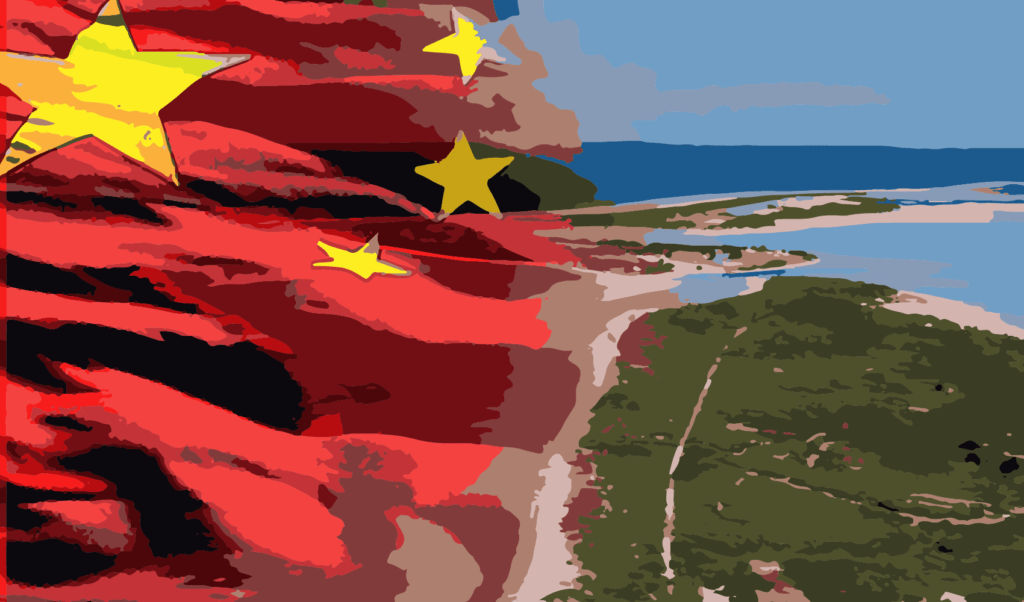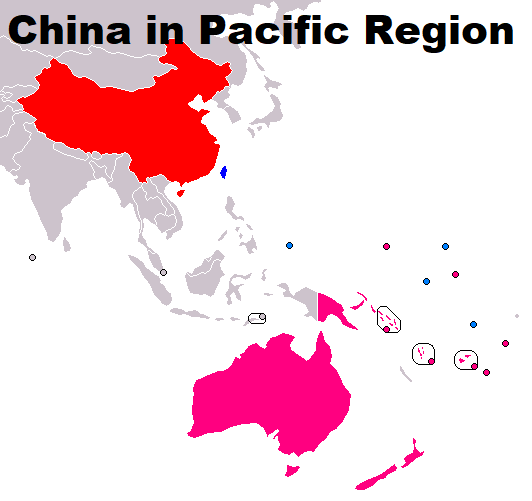China, Its Growing Interest Towards The South Pacific And The Concern Of The US Over This!
From China's ambitions and the relatively modest size of Pacific countries, it is clear that Beijing has ambitious long-term aspirations for the area.

The US wants to build an embassy in Vanuatu because Washington seeks to increase its diplomatic presence in the Pacific to offset China’s rising influence, says the State Department. The United States maintains diplomatic ties with Vanuatu, a South Pacific Ocean country of 319,000 people living across 80 islands, but is now represented by diplomats headquartered in New Guinea. Vanuatu had already signed a pact with China for the building of a new runway stretch at Pekoa airport on the island of Santo, allowing bigger aircraft access and making humanitarian relief delivery possible.
A permanent diplomatic presence in Vanuatu, consistent with the US Indo-Pacific policy, will allow the US government to embrace partnerships with Ni-Vanuatu officials and the community, the department said in a statement. The establishment of a US embassy in Port Vila would enhance possible areas of bilateral collaboration and development aid, including efforts to address the climate issue.

There are similar efforts by the US governance in other regions, amid tensions over China’s dominance in the South Pacific region.
After closing for 30 years, the US reactivated its embassy in the Solomon Islands this year. Kurt Campbell, the US Indo-Pacific coordinator, visited the region, including Vanuatu, before the new state department statement was released.
The Solomon Islands government revealed in March that a Chinese state business had been given a multimillion-dollar contract to renovate an international port in Honiara. Since the Solomon Islands signed a security agreement with Beijing last year, the US and its regional allies have been concerned that China intends to develop a naval base in the region.
Additional American embassies are proposed in Kiribati and Tonga, both Pacific island states. Furthermore, due to Kiribati’s abundant fishing resources and strategic location in the central Pacific, China’s stated interest in creating a similar agreement with that country has raised questions. Before switching to recognise connections with China in 2019, both Kiribati and the Solomon Islands had diplomatic ties with Taiwan.
Washington has also been making efforts to extend accords with the Marshall Islands, Palau, and the Federated States of Micronesia (FSM) that give it responsibility for the islands’ defence and exclusive access to vast swathes of the Pacific. The Biden administration is requesting more than $7 billion in economic support for the three countries over the next two decades, according to the State Department, money considered critical to shielding them from expanding Chinese influence.

Why is everyone so frightened, and what deals is China seeking in the Pacific?
Back in March 2022, rumours of a proposed security deal that would provide Chinese military and police broad access to the Solomon Islands surfaced, sparking increased interest in China’s intentions in the Pacific. The announcement shocked neighbouring Pacific countries, the US, and Australia and New Zealand, the Solomon Islands’ longtime security allies. News broke in May 2022 that Beijing was attempting to secure a comprehensive economic security agreement with 10 countries, which would mean a dramatic expansion of its influence in the region, as Wang Yi, the foreign minister of China, set out on a 10-day tour of the Pacific region that would take in eight countries.
What Pacific deals has China secured, and what is in the works?
The Solomons pact is Beijing’s first known Pacific bilateral security arrangement. It, therefore, widely believed that China would sign further deals as well as accords with other Pacific states.
Is China have any invisible advantage?
The Solomon Islands and Kiribati have switched their diplomatic recognition of China from Taipei to Beijing, and Washington’s talks to renew its free association agreements with the Marshall Islands, the Federated States of Micronesia, and Palau are reportedly going slowly and ineffectively. These developments suggest that the time is right for the PRC (Peoples’s Republic of China) to expand into the Pacific.

Conclusion.
Authorities in Beijing seem to think 20 to 30 years ahead. Chinese infrastructure projects and expanding connections with local authorities will eventually erode Australia’s and the United States’ influence. If Western influence fails, China’s educational scholarships for islanders and any help against rising sea levels will make a huge impression. When one considers China’s worldwide ambitions and the relatively modest size of Pacific countries, it is clear that Beijing has ambitious long-term aspirations for the area.
edited and proofread by nikita sharma




